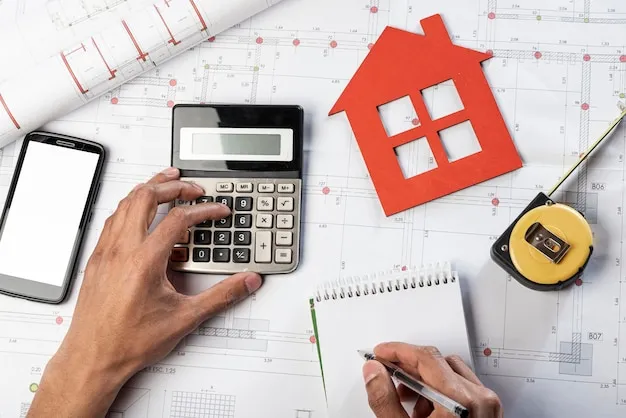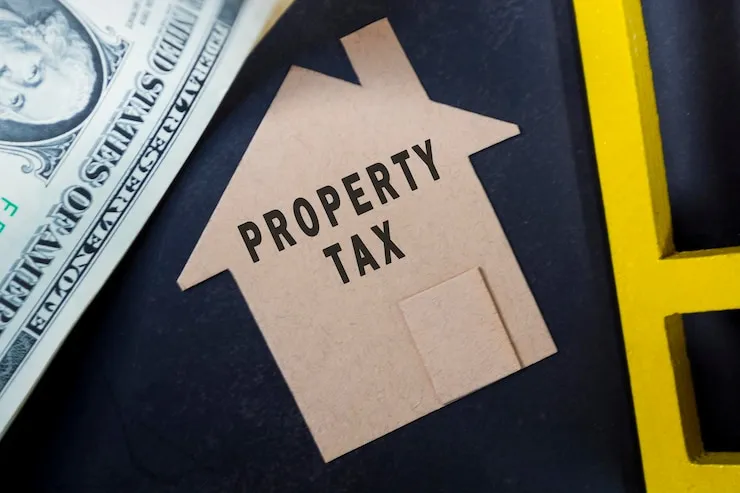Welcome to the club if you've ever stared at a tax invoice and questioned precisely what you're paying for. Between property taxes, real estate taxes, and other perplexing words that seem to trip you up, it's not unexpected individuals mix them up. Though certainly connected, they are not identical. Though not the entire picture, real estate taxes are a kind of property tax. That variation is very important if you are attempting to reconcile your tax deductions, budget more wisely, or only come to terms with what you are spending each year. Are Real Estate Taxes The Same As Property Taxes?
Read Also: Pedro Vaz Paulo Real Estate Investment: A Complete Guide 2025
Let’s Start With Real Estate Taxes

You own a home. Or a piece of land. Maybe even a small rental property. Each year, your local government sends you a bill. This is based on the worth of your property including the structures on it. That is your real estate tax. These taxes enable local services including schools, libraries, road maintenance, firemen and police departments.
So, when people ask, “What are real estate taxes?”, this is it: They’re taxes you pay for owning land and the structures on it. Nothing more, nothing less.
But Property Taxes Go a Bit Further
Here’s where things get a little twisty. Property tax is the big umbrella. Real estate taxes are just one part of it. There’s another part that often gets forgotten: personal property taxes.
These cover movable things you own—stuff like:
- Your car
- A trailer or RV
- Boats
- In some cases, business equipment or farm machinery
Depending on the state or city that you live in, you may have to pay property tax on these, too. It might be bundled into your car registration or listed separately on a bill. Either way, it’s not related to your home or land, but it’s still called property tax.
So if you've ever asked, “What are examples of personal property taxes?” — now you know. And yes, that annoying extra fee when renewing your car tags? That could be it.
Why the Difference Matters?
For most folks, these terms blend together. You hear “property tax,” and the first thing that comes to your mind is your house. That’s normal. Knowing what's what can, however, make a difference when it comes to your finances especially during tax season.
You could, for instance, ask: "Are taxes on real estate deductible?" The answer is yes. Under the current IRS rules, you can deduct taxes. This can go up to $10,000 combining the state and local taxes. That includes:
- Real estate taxes
- State income tax or sales tax
- Some personal property taxes
But there’s a catch. You only get this if you itemize your deductions. And once you hit that $10K cap, anything extra doesn’t count. So if you’ve got high property taxes or live in a state with high income taxes, you might max out fast.
Who Actually Gets to Claim These Taxes?
Here’s where people get tripped up. You can only claim deductions if:
- You legally own the property
- You paid the tax
That means renters can’t claim property taxes, even if their landlord passes the cost down in rent. And if your parents or partner paid the tax on your house? You can’t deduct it unless your name’s on the title and you paid it yourself. So if you're wondering “Who can claim property taxes?” — now you’ve got your answer: The owner who pays. No shortcuts.
You May Also Like: Why Is Location Important for a Business?
Real Estate Tax Calculators: Your Budget’s Best Friend

Ever heard of a real estate tax calculator? These tools are lifesavers, especially if you’re planning to buy property. Most state or county websites offer them. You just enter your home’s assessed value and your location, and you get a good estimate of your yearly tax bill.
It’s not always perfect, but it’s close enough to help you avoid surprises. For example, a house that seems affordable at first might come with a whopping $9,000 annual tax bill. That’s the kind of thing that can blow your budget if you don’t check ahead of time.
Let’s Talk Real Numbers for a Second
Picture this: You buy a home for $500,000. Your area’s real estate tax rate is 1.2%. That means your annual real estate tax is about $6,000. Are Real Estate Taxes The Same As Property Taxes?
Now let’s say you’ve also got a car worth $25,000, and your city charges personal property tax based on its value. You might owe another $350 to $500 just for that.
Combined with state income tax, you could be hitting that $10,000 SALT (State and Local Tax) deduction cap easily. That’s why this stuff matters—it’s not just labels. It’s dollars.
The Language Problem
Part of the issue is just how people talk. Even local governments often use “real estate tax” and “property tax” interchangeably. Your mortgage company might do the same. So it’s not your fault if it all sounds like the same thing. Knowing what kind of tax you're paying, however, aids in organization, budget planning, or even estate planning.
It also helps to label everything correctly if you are completing your taxes or utilizing a computer that automatically fills in information. Place a personal property tax in the wrong category and you could miss a deduction or set off alarms. One last point to remember.
Double-check who's really on the title if you own property, share ownership with a partner, or reside in a trust-managed house. That determines who gets to deduct what. And always keep your receipts. Whether you pay through escrow or send in a check, proof of payment matters—especially if the IRS ever asks questions.
Also, some business owners may owe property tax on equipment or commercial real estate. If you’re juggling multiple assets, talk to a tax pro. Or at least double-check your local rules.
Final Thought
Nope. They’re related, but not the same. Real estate taxes are just one type of property tax, specifically tied to land and buildings. Property tax as a whole includes a broader range—like vehicles and certain business assets.
Understanding the difference isn’t just trivia. It’s about knowing where your money’s going, what you can legally claim, and how to avoid financial blind spots.
If you’ve made it this far, you’re already ahead of most people. Now go check your last tax bill—you’ll probably see both terms used. But now? You’ll actually know what they mean.













